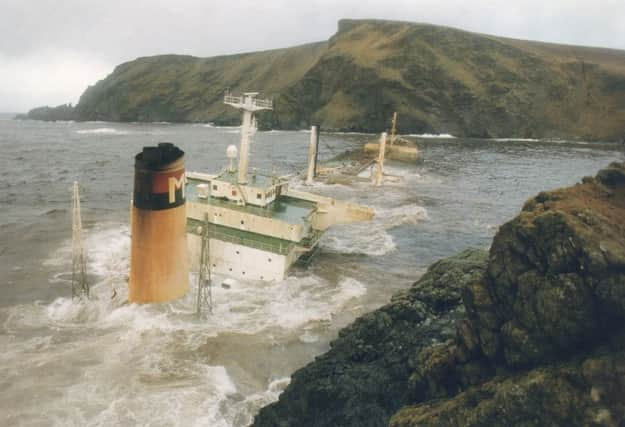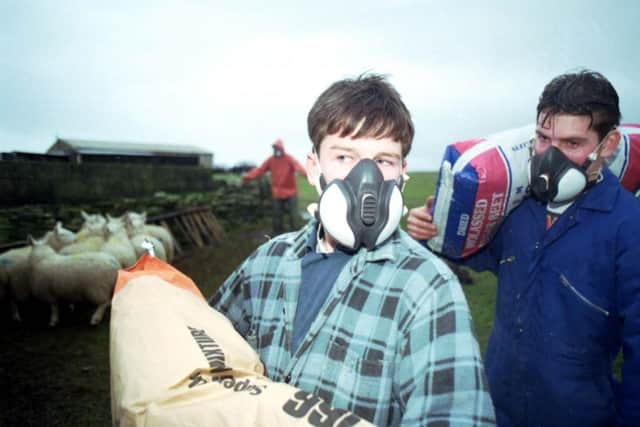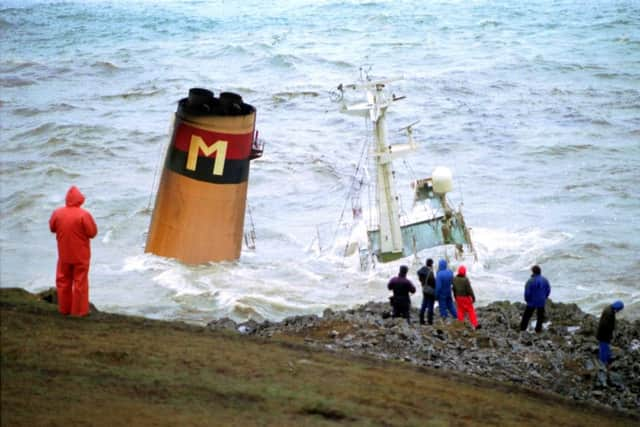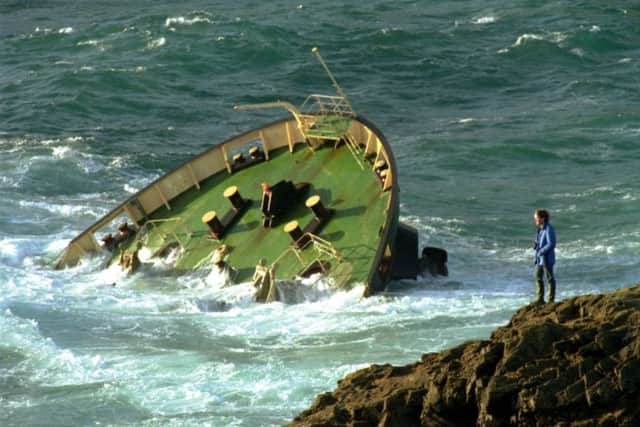The Braer oil disaster: Scotland's worst environmental catastrophe


The local authority was informed the ship, which was bound for Canada, was in no immediate danger. But the situation soon changed. The Braer was drifting in a southwesterly direction and it was clear she could soon run aground. An attempt to tow the tanker to safety failed, and by 11.20am she was confirmed as having grounded at Quendale Bay, just west of Sumburgh Head.
While all her crew were safely rescued, Scotland’s worst ever environmental catastrophe was just beginning. The Braer was loaded with 85,000 tonnes of Norwegian Gullfaks crude oil, which soon began spilling into the North Atlantic.
Advertisement
Hide AdAt least 1,500 birds died and up to a quarter of the local grey seal population was affected, WWF Scotland later reported.


But favourable weather conditions meant much of the oil was swept out to sea - lessening the impact on the coastline.
“We were expecting the worst but it did not really happen. The wind blew the oil away,” Jonathan Wills, a Shetland journalist who researched the disaster, told BBC Radio’s Good Morning Scotland programme.
“What happened was that the ship almost hit a big off-lying rock and there was a very heroic rescue for which the coastguard was never praised properly.


“They took all the crew off and landed them on the shore and the police took the crew to a hotel.
“Then the ship missed the rock and the captain of the ship, who I interviewed in Greece some years later, tried desperately, with the coastguards, to get his crew back on board but the police would not release his crew because there was a confusion over orders.”
Advertisement
Hide AdBy October 1995 a total of £45m had been paid out in compensation.
Speaking on the 20th anniversary of the disaster in 2013, WWF Scotland spokesman Lang Banks said: “The Braer disaster was most definitely an extremely close shave in environmental terms.


Advertisement
Hide Ad“Thousands of birds are still estimated to have perished and marine wildlife, such as shellfish, finfish and marine mammals were badly affected [with] thousands of pounds lost by fisheries and salmon farms. Despite the passage of some 20 years, the sad fact is that much of Scotland’s marine environment remains just as much at risk from oil and other pollution. We urgently need to see a more permanent solution regarding emergency towing vessel cover around Scotland’s coastline.
“Every year, the oil and gas industry is responsible for almost a thousand oil and chemical spills in the North Sea. As the recent accidents on Total’s Elgin and Shell’s Gannet Alpha platforms show, we are never far away from the next major pollution incident.”